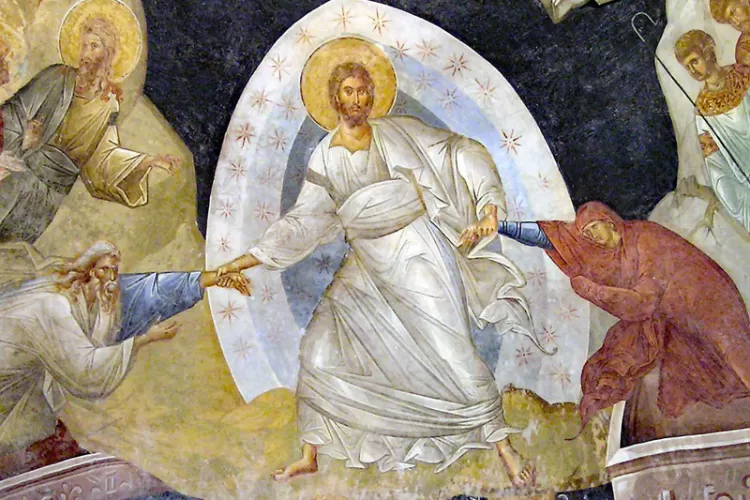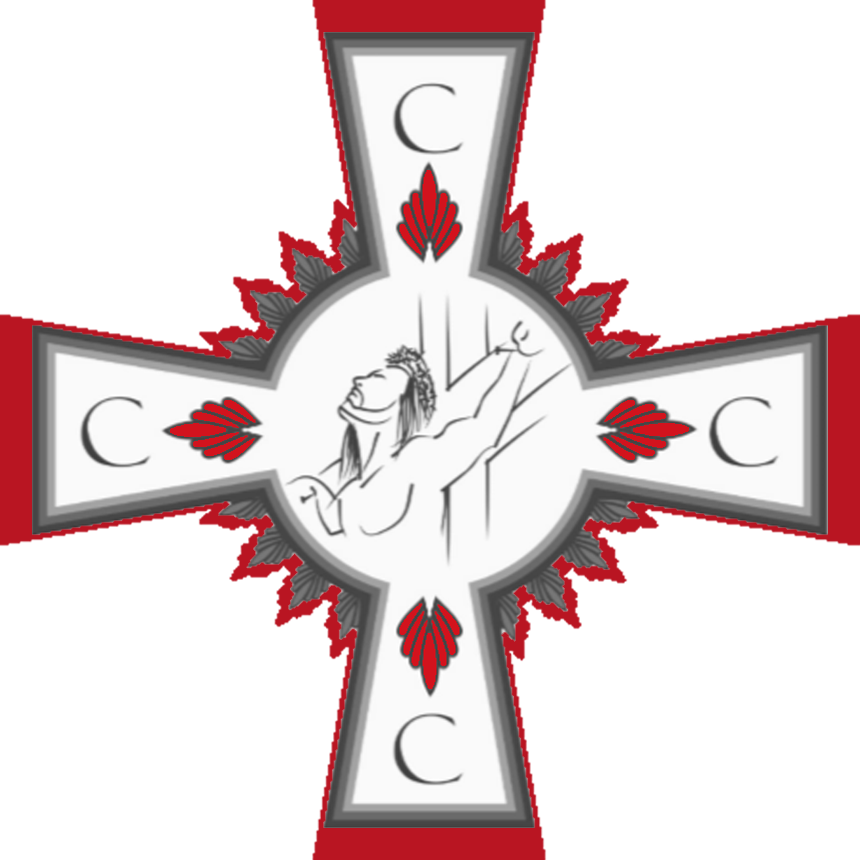
Christ is risen, alleluia!
Celebrating
the Fifth Sunday of Easter //
quinto domingo de pascua
May 18, 2025 || 18 de mayo, 2025
Easter Season
Easter is the most important of all liturgical seasons, as we celebrate the center of our Christian faith, which is the death and resurrection of Jesus. The term “Easter” means “passage,” for Christ, dying on the cross, passed from death to life to enable us to pass with Him and in Him, through faith and the sacraments, to a new, definitive, and glorious existence. It is also the Passover of the Church, His Body (cf. Col 1:18), which is introduced into the New Life of her Lord through the Spirit that Christ gave her on the day of Pentecost.
The Easter season is even more important than Christmas.
It’s important to note that the Easter season is even more important than Christmas. In fact, Christmas is a prelude to Easter, which is why iconography often depicts the newborn child shrouded, expressing that he was born to enter death and rise again. The same is expressed, for example, by the myrrh offered by the Magi from the East to the newborn.
This season begins at the Easter Vigil and is celebrated for seven weeks (fifty days, in Greek = “πεντηκοστή”), until Pentecost. The Feast of Easter is so great that one day, nor seven, nor twenty, are enough to celebrate it; yet these days are lived and celebrated as one. “The fifty days that run from Easter Sunday to Pentecost Sunday are to be celebrated with joy and exultation as if they were one and the same feast day, indeed, as ‘one great Sunday’ ” (NUALC, 22).
Easter is the oldest feast celebrated by the Church.
Easter is the oldest feast celebrated by the Church, as it began to be celebrated on the very day of Jesus’ resurrection, Sunday. Thus, Sunday after Sunday, the Christian community celebrated the resurrection of Jesus. Centuries later, the Solemnity of the Nativity of the Lord began to be celebrated (4th century), and thus, little by little, the liturgical seasons were established, with the solemnity of Easter as the center of the entire year.
The Jews already had the “Feast of Weeks” (cf. Dt 16:9-10), initially an agricultural feast and later a commemoration of the Covenant at Sinai, fifty days after Passover. Christians very early organized seven weeks, prolonging the joy of the Resurrection and celebrating, at the end of the fifty days, the Feast of Pentecost: the gift of the Holy Spirit. Already in the second century, we have Tertullian’s testimony, who speaks of this period not being fasted, but rather experiencing prolonged joy.
El Tiempo Pascual
El tiempo de Pascua es el más importante de todos los tiempos litúrgicos, puesto que celebramos el centro de nuestra fe cristiana, que es la muerte y resurrección de Jesús. El término «Pascua» significa «paso», pues Cristo muriendo en la cruz ha pasado de la muerte a la vida para hacernos pasar con Él y en Él, a través de la fe y de los sacramentos, a una existencia nueva, definitiva y gloriosa. Es la Pascua también de la Iglesia, su Cuerpo (cfr. Col 1, 18), que es introducida en la Vida Nueva de su Señor por medio del Espíritu que Cristo le dio el día de Pentecostés.
El tiempo de Pascua es incluso más importante que la Navidad.
Es importante señalar que el tiempo de Pascua es incluso más importante que la Navidad. De hecho, la Navidad es un preanuncio de la Pascua, por eso la iconografía suele pintar al niño recién nacido como amortajado, expresando que ha nacido para entrar en la muerte y resucitar. Lo mismo expresa, por ejemplo, la mirra ofrecida por los magos de oriente al recién nacido.
Este tiempo se inaugura en la Vigilia Pascual y se celebra durante siete semanas (cincuenta días, en griego = « πεντηκοστή»), hasta Pentecostés. Es tan grande la Fiesta de la Pascua, que no basta un día ni siete ni veinte para celebrarla; y, sin embargo, estos días son vividos y celebrados como un solo día.
“Los cincuenta días que van desde el domingo de Resurrección hasta el domingo de Pentecostés han de ser celebrados con alegría y exultación como si se tratase de un solo y único día festivo, más aún, como ‘un gran domingo’ ”. (NUALC, 22).
La Pascua es la fiesta más antigua que la Iglesia celebra.
La Pascua es la fiesta más antigua que la Iglesia celebra, puesto que empezó a celebrarse el mismo día de la resurrección de Jesús, el domingo. Así pues, domingo tras domingo, la comunidad cristiana celebraba la resurrección de Jesús. Siglos más tarde se empezará a celebrar la solemnidad de la Natividad del Señor (siglo IV) y así se irán constituyendo, poco a poco, los tiempos litúrgicos, teniendo como centro de todo el año la solemnidad de la Pascua.
Los judíos tenían ya la «fiesta de las semanas» (cfr Dt 16,9-10), fiesta inicialmente agrícola y luego conmemorativa de la Alianza en el Sinaí, a los cincuenta días de la Pascua. Los cristianos organizaron muy pronto siete semanas, prolongando la alegría de la Resurrección y celebrando, al final de los cincuenta días, la fiesta de Pentecostés: el don del Espíritu Santo. Ya en el siglo II tenemos el testimonio de Tertuliano que habla de que en este espacio no se ayuna, sino que se vive una prolongada alegría.
